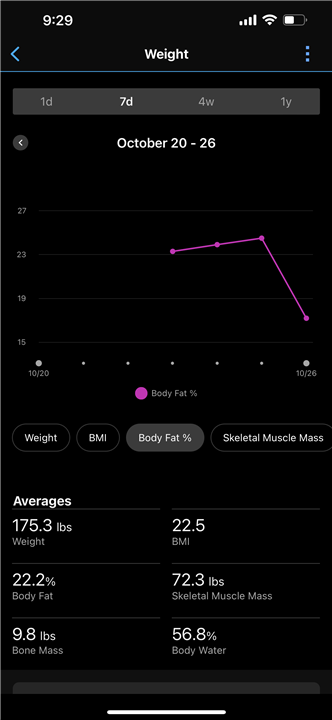- Consent to be added to an internal case - yes, I consent
- Consent to access your Garmin Connect account (if needed) - yes, I consent
- What device/test are you comparing your Index readings to - Tanita Inner Ccan
- What does your Index S2 display vs what does your reference device display - S2 Fat = 17.1 Tanita =10.6
- What is your activity class set to, and is this appropriate for your activity level - 8 - Yes



